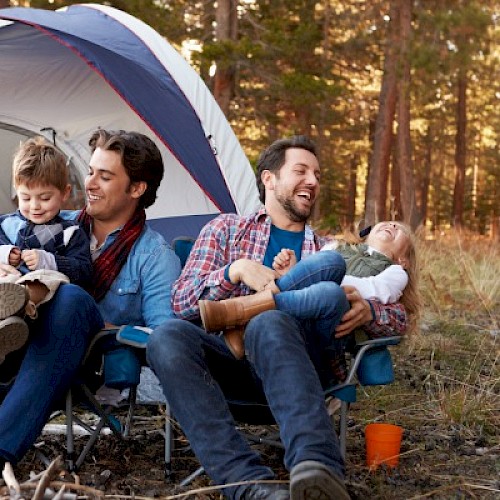Your fostering questions answered.
Interested in becoming a foster carer but not sure whether it's right for you?
It’s only natural to have a lot of questions if you’ve never fostered a child or children before. And when you don’t have all the answers it can put you off taking that important first step. We get it. That’s why we're here to put your mind at ease and make it easy to find out whether becoming a foster carer is suited to you.
What qualifications do I need to foster a child?
No formal qualifications are required. If we believe fostering is a good fit for you, we’ll provide the relevant training – for FREE. Your personal development will be ongoing to enable you to provide the best support possible for the children in your care.
Am I too old to foster?
Anyone over 21 can apply to become a foster carer and there is no upper age limit – in fact several of our foster carers are aged 60+. However, your age and health may be taken into account when considering the age and needs of the children suitable for placement with you.
Do I need to be married to be a foster carer?
No - our foster carers can be single. They can also be married couples, in civil partnerships or unmarried couples (whether heterosexual or same-sex) – they just need to demonstrate your ability to provide a caring and nurturing environment for your foster child.
I am from a minority ethnic background - can I foster?
We welcome foster carers from all backgrounds, regardless of race/ethnicity. Local authorities often match children with foster carers from similar backgrounds and there is a high demand for foster carers with BME heritage. While additional languages/cultural experiences always help enrich a child’s experience, we’d need you to be able to speak and write English.
Do you need to be religious to foster?
No, we welcome enquiries from people of any or no religious faith. What is important is that you can promote the child’s religious belief, regardless of your own.
My partner is a smoker, can we still foster
We encourage applicants to be non-smokers. It is Diagrama Fostering’s policy not to place children under the age of five in households where there are people who smoke, vape or use e-cigarettes.
What about my job?
Can I still work while fostering? In some circumstances you can foster and continue to work, providing you can balance the needs of your foster child/children with your work. If you foster as a couple, one of you will usually be designated the “main” foster carer and the other could then work in another role. Foster carers are expected to be available to care for children, attend meetings, training, support groups, and to promote and support contact between a child and their family. If you plan to work full-time while fostering, you may be more suited to a ‘part-time’ foster care role (see about foster care, types of foster care), such as respite care.
I live in a rented flat – would that stand against my fostering application?
No – we only ask that your foster child has their own bedroom and your home has appropriate, adequate and stable accommodation. You do not need to own your own home to become a foster carer.
I had some health problems last year – can I still foster?
Providing your health is sufficient now and you have the vigour to manage energetic children, then this shouldn’t be a problem. If you have a long-standing or degenerative health condition, the panel may approve you to foster on a short term placement basis (under 2 years). Get in touch with our team to discuss this in more detail.
I have children already – is that a problem?
No! Having your own children is a great way to gain the skills and experience you need to become a foster parent. If your children are still at home their needs will be considered when we’re matching you with foster children and young people. Everyone in your household will play a part in making a difference to your foster children, helping them to feel valued. We organise regular events and activities throughout the year for the whole family to enjoy.
We have a pet dog – will we be allowed to foster?
Family pets can be an asset – providing a therapeutic impact on children and young people. However, every animal is different and your pets will be assessed as part of the process of fostering with Diagrama, taking into account their temperament and behaviour. Local authorities will not place a child with a household that has any breed of dog highlighted within the Dangerous Dogs Act.
Want to know more about being a foster carer?
If you’d like to know more about becoming a foster carer, you can download our Foster Care Information Pack with details about the process, the training, support and rewards.


 Diagrama Foundation
Diagrama Foundation
